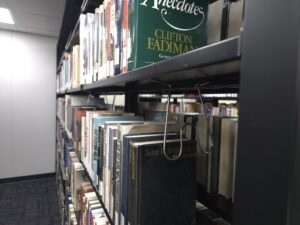I don’t understand fry sauce: A critique on western ideals

Photo by Ahmad No More on Pexels.com
My wife, Nillia, and I frequently discuss the different ways we grew up. The differences are not inherently bad; however, they can lead to differing opinions on certain matters. In most cases, it’s usually the food that I, being an immigrant to the U.S., sometimes have difficulty wrapping my head around. For example, I never truly understood the craze around fry sauce or the soda shops that seem to be everywhere in my town of Logan, UT. I often discover that I haven’t tried a lot of cultural norms, like dipping a grilled cheese in tomato soup or being OK with only salt and black pepper on any food. It is obviously a lot bigger than food; I’m going to talk about three main ideas that stood out throughout my life living in the U.S., those being money, family, and language.
First, there is the idea of money. Not to say that money isn’t important, but people here talk about money a lot. I was always raised with the idea that talking about money or how much someone made is taboo or disrespectful. When you ask people in other parts of the world, “What do you do?”, they don’t automatically think about their occupations. Here, I’ve noticed that it is instantly about your occupation, and even more how much money it makes. It is especially odd because of the prominent wealth inequality in the United States. Many people are living paycheck to paycheck, being unable to afford much more than basic necessities. Their once-in-a-lifetime luxuries are something the well-off wouldn’t even bat an eye at purchasing.
My wife came from a background of money. She didn’t fully understand the value of a dollar or the steps someone might normally take to earn a livable wage. In some stories that she would share, her family would often buy her anything and everything she wanted, especially when they wanted to be viewed by others as this idea of “rich.”
The better half of my childhood was spent in apartheid Gaza, Palestine. I lived with almost all my extended family less than a couple blocks away. My father’s parents were in the first level of my ancestral house and my mother’s parents were no further than a half kilometer down the road. I wasn’t raised to expect much for birthdays other than a cake and a personalized family dinner. Keep in mind, my family was on the wealthier side of the average Palestinians living in Gaza. I don’t mean to say these remarks as something saddening. In all honesty, I considered myself fairly rich. Maybe not monetarily or materialistically, but through the immense privilege of family that can never be replicated or bought.
Secondly, is Western family structures. As previously mentioned, I grew up living fairly close to my entire family. I notice especially in U.S. media, whether that be shows, movies, books, etc., that it is a cultural standard to leave your parents house at 18 and likely never live with them again after that. Moreover, it is often seen as cringe and sad when adults are living with their parents.
It is, unfortunately, a luxury to move out, which, according to education data, “The cost of tuition at public 4-year institutions increased 36.7% from 2010 to 2023.” On top of tuition and housing costs, according to the ipropertymanagements database, the average rent has increased by over 60 percent in those same years. It is understandable why it is more common to see people living at home now, especially for college. Whilst the people that stay home for college likely have less financial stresses, they tend to still feel like they are missing out on most of the college experience. Whether it is getting involved in campus events or making friends, it tends to be easier when you are living on campus.
In terms of my culture, you tend to try to stay with your parents for as long as possible, they aren’t generally annoyed by you wanting to stick around and from my experience, and it can even strengthen family bonds. I do see myself moving out in the near future, and gravely understand the appeal of privacy and independence. However, I also can’t imagine living states away from my parents (at most!).
Lastly, is the topic of language, specifically broken English. It’s not uncommon to hear tourists share stories about the places they visit and the anger directed at them for not learning the language well enough. Many Americans are indifferent to this. We almost instinctively notice a person’s accent the second they speak. Some see it as exotic and others see it as a lack of intelligence. Moreover, this is often rooted in the racist biases toward BIPOC (Black, Indigenous, People of Color) and the idea that they come from ‘less developed countries’;All the while, Eurocentric places are seen as exotic and luxurious.
My wife and I share memories in our youth of family members humiliating our mothers, grandmothers, etc., by asking them to say difficult-to-pronounce words in English. I would tell my mother to pronounce, “purple,” and my siblings and I would then laugh when she would pronounce, “burble.” It unfortunately doesn’t end there.
BIPOC immigrants are held to this standard of accustoming to perfect unaccented English. The hypocrisy is clear. I fell into the same trap, thinking that I needed to talk a certain way to better fit in with my peers growing up in the United States. I would hear things like, “Don’t you live here? Shouldn’t you learn better English?” I had an accent until I was in 9th grade. I even joined my high school’s speech and debate team because I wanted so badly to get rid of my accent. It was until I read a segment of a book in my junior year English class about Amy Tan’s book, “The Joy Luck Club.” The book deals with strong themes of immigration, language, mistranslation, and specifically the relationship that the author had with her mother who had, what we would call, broken English. The author realizes that she would implicitly talk to her mother in a repetitive, fragmented way, because it was how she perceived her mother to understand—not realizing that it was a limitation she was setting on her mother, and not a reflection of her mother’s ability to comprehend more.
I had a similar realization when I noticed how people treated my father, a PHD graduate from USU. He is one of the most eloquent people I know and for the longest time, even I had this implicit bias because he had a very strong Arabic-English accent. It truly didn’t relate to his intelligence in any way. A key takeaway is not to judge people by how they speak or pronounce words, but by the message they are trying to convey. Language is the basis of understanding and that is how it should be judged. As long as you understand what someone is saying, is their English really broken?
As of now, I have finally tried dipping grilled cheese in tomato soup, and I can confidently say that I have been missing out. I continue to better educate myself and indulge in different cultures whether it be here in Utah, or the Filipino culture that my wife is a part of. We can often better understand our own culture through the understanding of others. I will continue to despise fry sauce, but that doesn’t mean that I’m not open to having it on the table.




